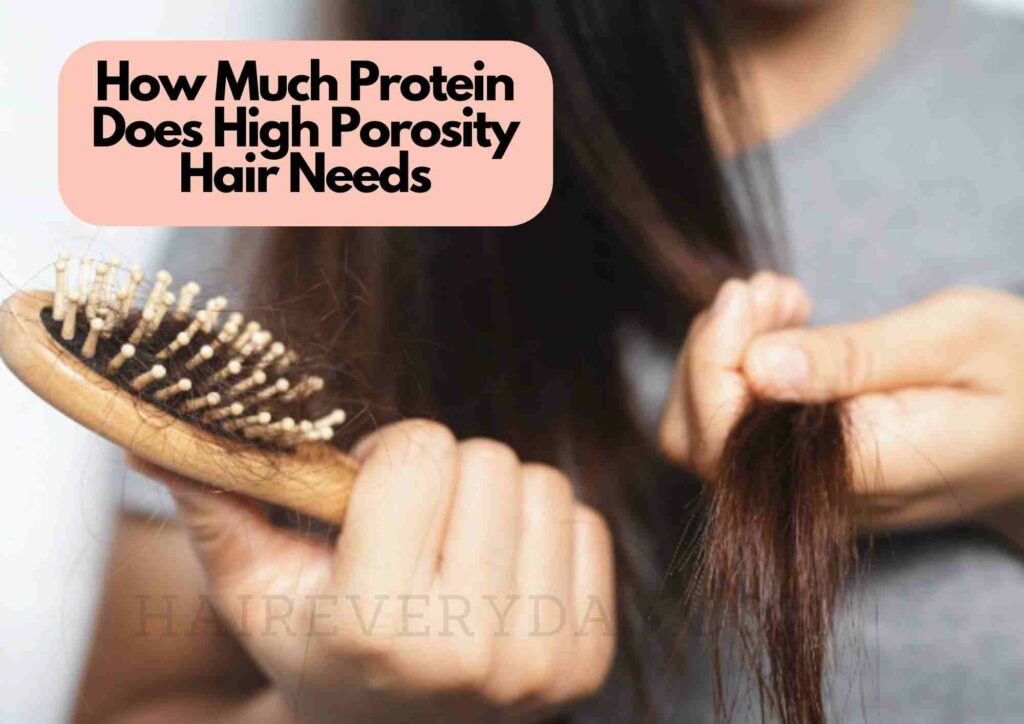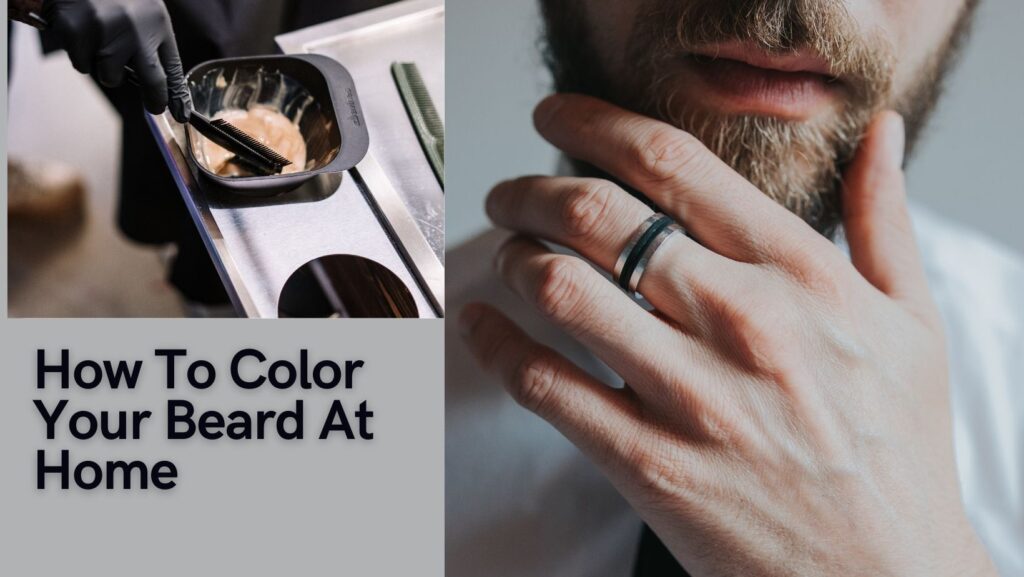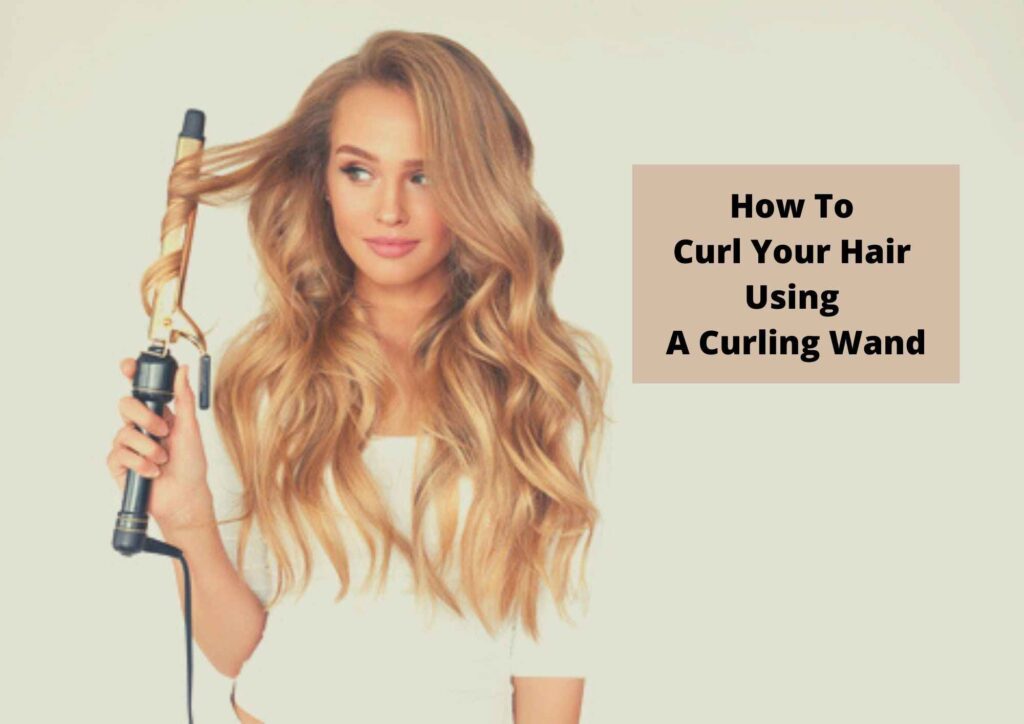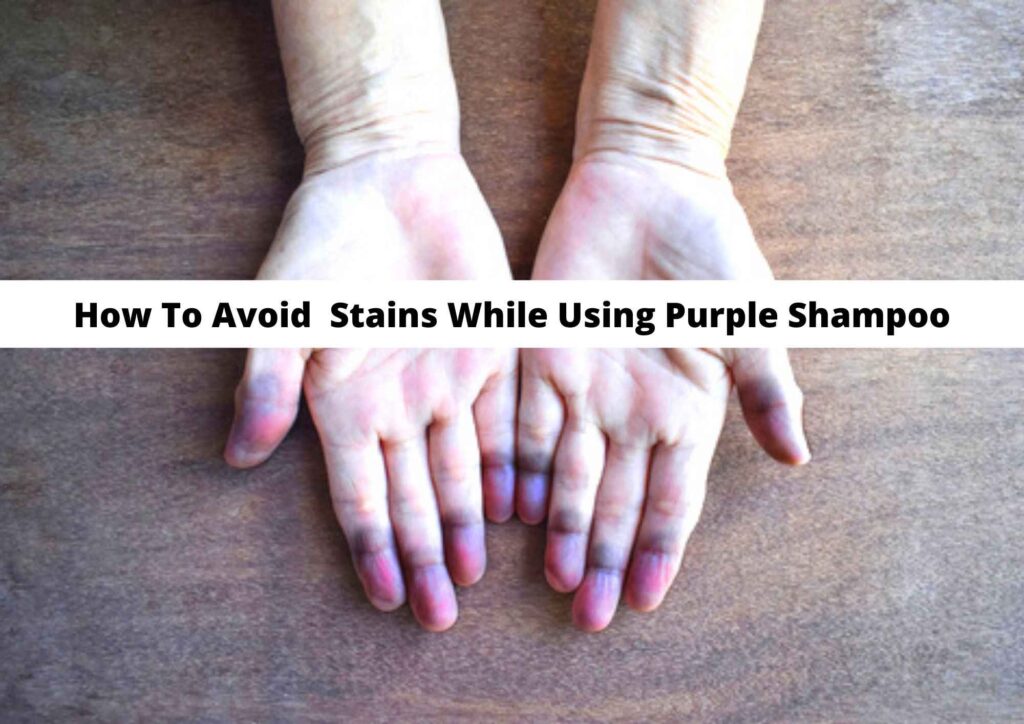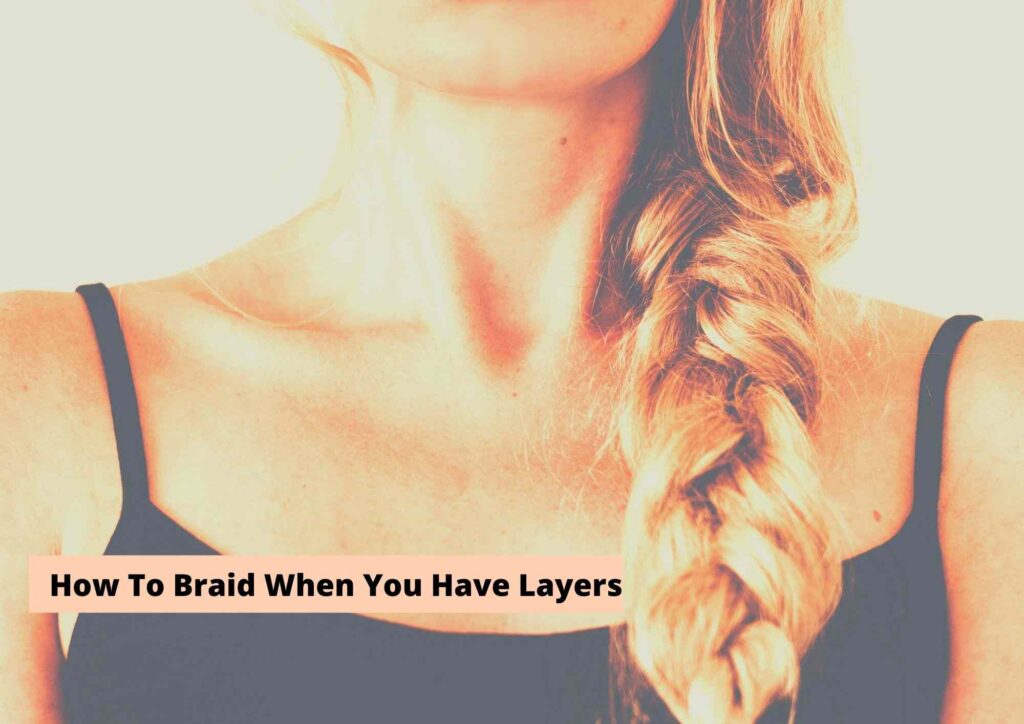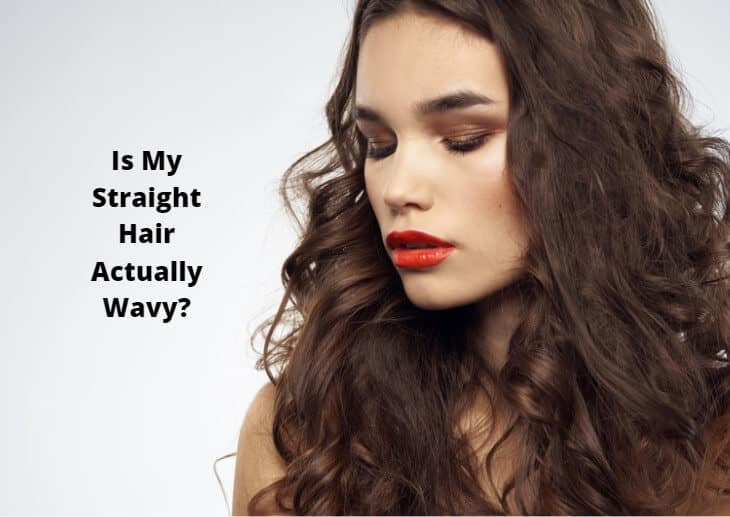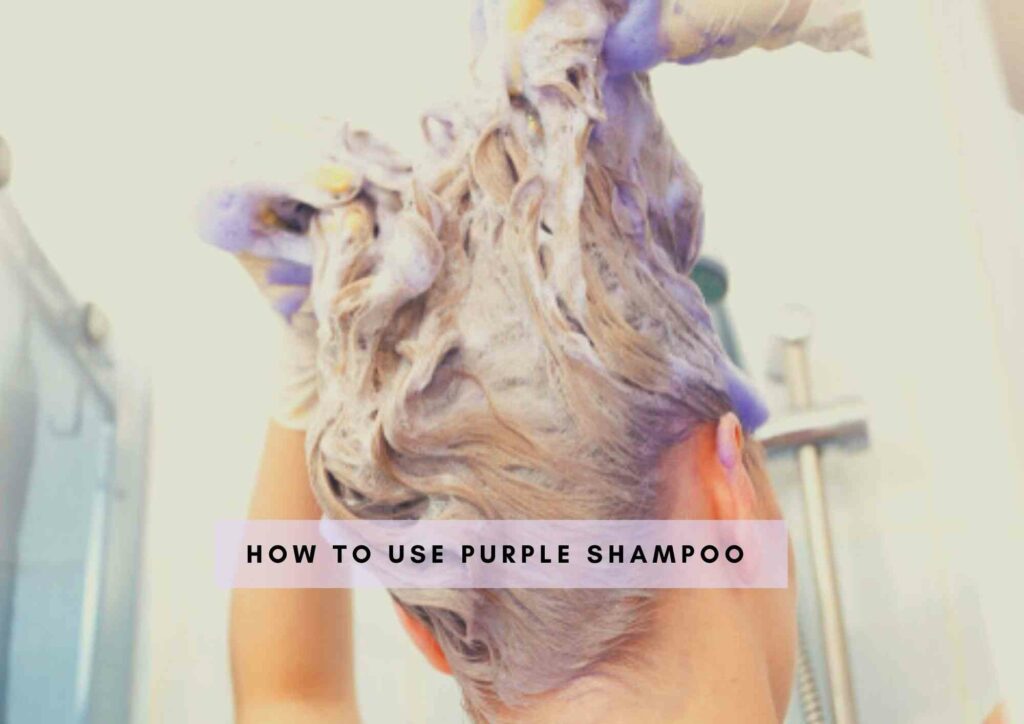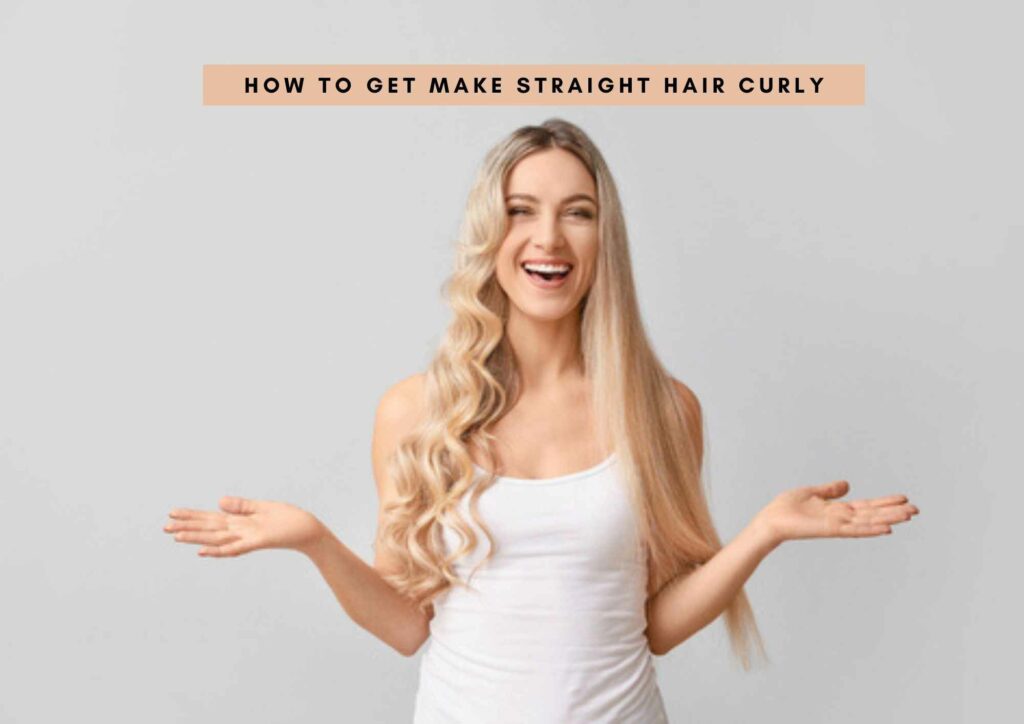Does High Porosity Hair Need Protein? Learn in my article below to know how to maintain protein-moisture balance in different porosity hair.
Having high porosity hair is a common challenge for those with curly and kinky hair. It can seem like a large battle to figure out the perfect hair care routine – especially when understanding the role of protein treatment. Many have wondered: Does high porosity hair need protein?
Here you will learn why protein treatments are beneficial for high porosity hair and the different ways to incorporate it into your haircare routine to get the healthy, gorgeous hair that you deserve.
Does High Porosity Hair Need Protein
When it comes to high porosity hair, the answer to the question “Does it need protein?” is a resounding yes!
High porosity hair is inherently more porous and prone to breakage than other hair types, meaning that it needs more targeted care and attention to keep it looking and feeling its best.
Protein fortifies the hair, reinforcing the inner and outer layers and helping to keep hair resilient and strong.
Protein also helps to bind moisture and promote healthy growth. Since high porosity hair can be prone to losing moisture quickly, it’s important to use protein treatments with care and balance out any protein with an equal dose of moisture.
Regular protein treatments help the hair to retain its natural balance and health.
When adding protein to high porosity hair, it’s important to remember that moderation is key. Too much protein in the hair can cause it to become stiff and brittle, while too little can leave the hair feeling weak and brittle.
For best results, it’s important to consult a professional stylist or cosmetologist when beginning a protein regimen to make sure that the right amount of protein is used.
The key to keeping high porosity hair healthy and strong is to find the right balance of protein, moisture, and nourishment.
Regardless of whether your hair is high or low porosity, adding protein to your hair care routine will help strengthen your hair, promoting a healthy and beautiful mane.
What Does High Porosity Hair Mean
High porosity hair refers to how easily moisture and other elements like proteins can pass through the strands of hair.
Put simply, the higher a hair’s porosity, the easier it is for moisture and the products we use on it to pass through. It’s estimated that anywhere from 40 to 80% of people have high porosity hair, regardless of hair texture.
Having high porosity hair means that the cuticle layer of your hair may be naturally raised and easily lifted, leading to more potential damage and breakage, and a quicker loss of moisture.
This doesn’t, however, mean that nurturing your high porosity hair is an impossible task. With the right strategies in place, you can maintain an abundance of natural and healthy hair.
You’re bound to notice some difficulties in caring for your high porosity hair, such as the drainage of water and product. Even with the amount of products you may use, your hair may still appear dry and brittle, leaving you wondering what’s going wrong.
That’s why it’s essential to understand hair porosity. With the right knowledge, and understanding of your hair’s needs, you can properly care for and maintain naturally healthy hair.
How Are Proteins Important To Hair Porosity
Proteins are an important component in maintaining healthy hair with any porosity level. When it comes to high porosity hair, extra attention is needed to ensure its stability.
Proteins can help balance out the porosity, providing more elastin in the strands to make it stronger and more resistant. This helps to reduce hair breakage and split ends, while also boosting shine and making the hair feel softer.
Proteins are essential for adding strength to high porosity hair because they form a protective layer on the strands. The proteins act as a barrier to protect the hair from weather and other environmental aggressors, such as pollution and harsh chemicals.
They also help to bind and lock in moisture, allowing the hair to retain its natural softness and shine. Without the proper amount of protein, the hair can become dry and brittle, easily breaking and fraying.
Another benefit of proteins is that they help restore the structure of high porosity hair. When the structure of a strand is damaged, the proteins become a scaffold for the follicle, filling in the voids to form a better shape.
This helps to return the hair to its natural, healthy state and makes it easier to style. Proteins can also help reduce the appearance of frizz, giving the hair a smoother, more defined look.
To ensure that high porosity hair remains protected and healthy, adding proteins to a regular hair care routine is key. Choosing the right products and following a well-balanced hair care plan can provide high porosity hair with the nourishment it needs to stay strong, shiny, and frizz-free.
- Related: Have High Porosity Hair? Read This Easy Hair Care Guide Today!
- Related: What Is Hair Porosity And How To Find Out Yours Easily In 30 Seconds Flat
How To Maintain Protein Moisture Balance in High Porosity Hair
Maintaining protein moisture balance in high porosity hair can be tricky. The key to success is finding the magic ratio, allowing protein and moisture to work together and complement each other.
Too much protein can lead to dry, straw-like hair; and too much moisture can cause hair to become dull and limp. To help achieve the perfect balance, here are some useful tips.
Begin by washing and conditioning with products that are fit for high porosity hair, specifically formulated and enriched with proteins and humectants. Deep conditioning treatments are also an effective way to infuse high porosity hair with maximum moisture.
Applying a leave-in conditioner and sealing with an oil or butter can further ensure moisture is locked in.
To keep hair strong and resilient, use a weekly protein intensive treatment. Look for treatments that contain ingredients like hydrolyzed keratin, collagen, and wheat/rice proteins, that can help strengthen and repair hair cuticles.
It’s also essential to moisturize often. High porosity hair has an affinity for water so regular spritzing with a water-based leave-in mist can help keep hair hydrated.
Additionally, add a few drops of oil to your spray bottle to keep the hair shaft from becoming parched.
Finally, the best way to maintain the perfect protein-moisture balance for high porosity hair is to acknowledge and embrace your hair type.
By adapting your routine, using the best products for high porosity hair, and following these tips, you will have beautiful, healthy hair in no time.
Does Low Porosity Hair Need Protein
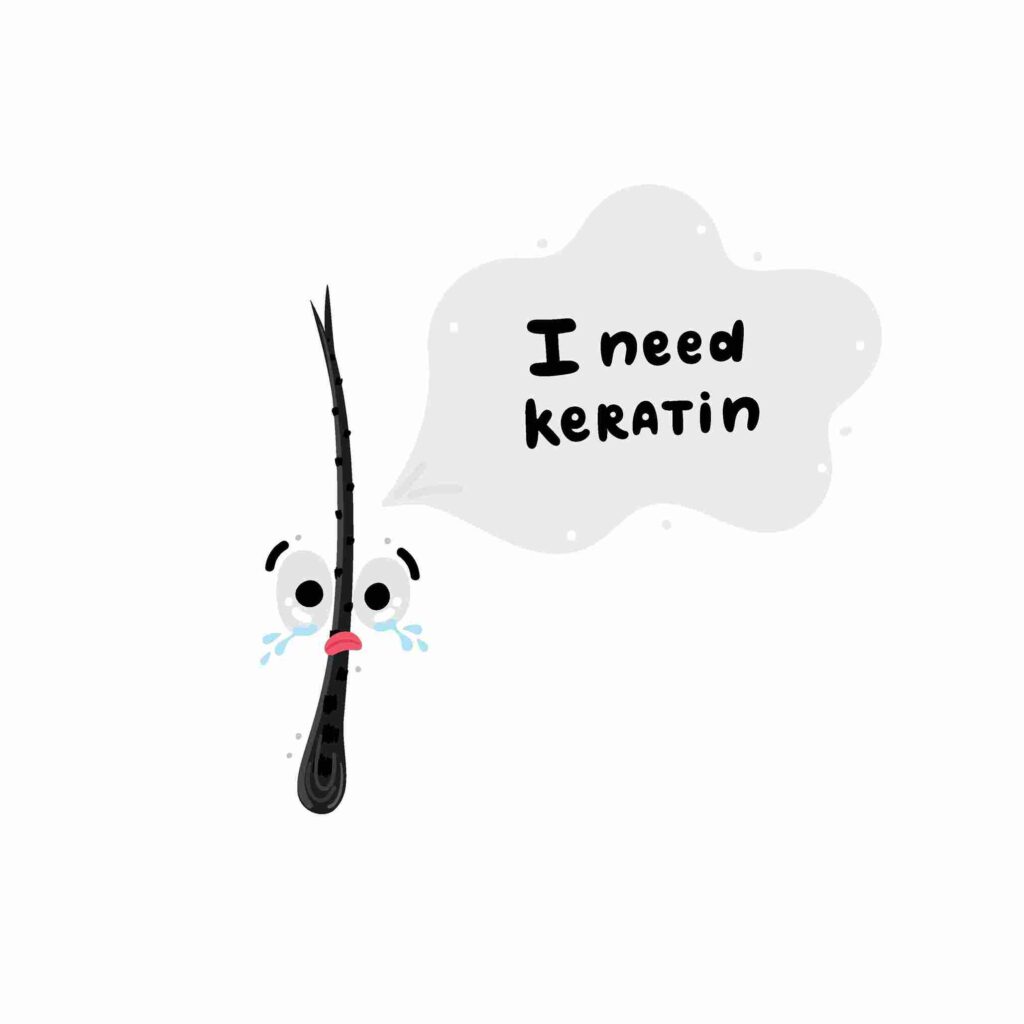
When it comes to hair porosity and protein, the answer to the question “does low porosity hair need protein” is surprisingly the same as the answer for high porosity hair. All hair types, regardless of porosity level, need some form of protein to remain healthy.
Low porosity hair is often characterized by having a dense cuticle layer which makes it harder for external substances, such as moisture and protein, to penetrate it.
This means that low porosity hair must be treated with protein treatments designed to penetrate the cuticle layer.
However, this doesn’t necessarily mean that such hair needs to be treated with a protein treatment every single time it gets a wash.
Some people who have low porosity hair prefer to alternate a protein treatment with a moisturising treatment, so that their mane’s cuticle layer remains healthy and happy.
That said, all hair needs some kind of protein for it to be able to remain strong and healthy, regardless of porosity levels.
For example, frequent use of heat tools on all hair types can weaken natural protein bonds due to the excessive heating effect.
As such, supplementing your hair’s protein levels with the appropriate protein treatment can help restore any lost bonds and thereby keep your hair in optimum condition.
In short, all hair needs some form of protein to remain healthy, however, exactly how much and how often it needs to be supplemented depends largely on the individual’s hair porosity levels.
People with low porosity hair can ‘balance’ treatments with both moisturizers as well as protein treatments. Therefore, the answer to the question “does low porosity hair need protein?” is a big YES!
What Protein Treatments Are Best For High Porosity Hair

When it comes to high porosity hair, there’s no one-size-fits-all solution when it comes to choosing a protein treatment. However, there are some great options to choose from that can help to strengthen and protect your hair.
For example, hydrolyzed keratin is one of the best proteins to look for when treating high porosity hair.
As hydrolyzed keratin is already broken down, it can easily penetrate the hair shaft, enabling it to repair and strengthen weak, brittle strands. A keratin treatment will help to rebuild damaged cuticles and help to reduce frizz and flyaways.
Another great option to consider is a deep conditioner with natural proteins like honey, aloe, and silk protein.
These ingredients help to lock in moisture, smooth and soften strands, and repair any damage. A deep conditioner with proteins is perfect for those with high porosity hair, as it helps to fight off breakage and restore strength.
If you’re looking for something a bit more powerful, you could try a moisturizing cream or deep treatment mask with hydrolyzed wheat or rice protein. Both of these proteins are known to help with strengthening the hair, reducing frizz and giving it a glossy shine.
No matter which protein treatment you decide to go with, it’s important to make sure it is free of any harsh chemicals.
These chemicals can be damaging to your hair and can strip away any moisture and natural oils. Ultimately, selecting the right protein treatment for your high porosity hair can make all the difference in restoring your hair’s strength and vitality.
Conclusion
It is clear that high porosity hair needs protein to maintain strong and healthy tresses. Between protein treatments and regular maintenance of the hair, one can easily improve their hair’s condition and hydration levels.
Knowing your hair porosity is the most important piece of information to properly care for your hair, specifically if it is high porosity. With proper care, you can restore your hair’s vibrancy, strength and its glorious sheen – making it like new!
Also Read:
Is Rice Water Good For Low Porosity Hair
Are Hot Oil Treatments Good For Low Porosity Hair
Best Oils For Low Porosity Hair
Can I Use Shea Butter For High Porosity Hair
Is Shea Moisture Coconut And Hibiscus Good For Low Porosity Hair
Can High Porosity Hair Be Protein Sensitive
What Are The Best Shampoos For Low Porosity Curly Hair
Are Protein Treatments Bad For Low Porosity Hair
What Are The Best Deep Conditioners For High Porosity Hair
To Summarize

